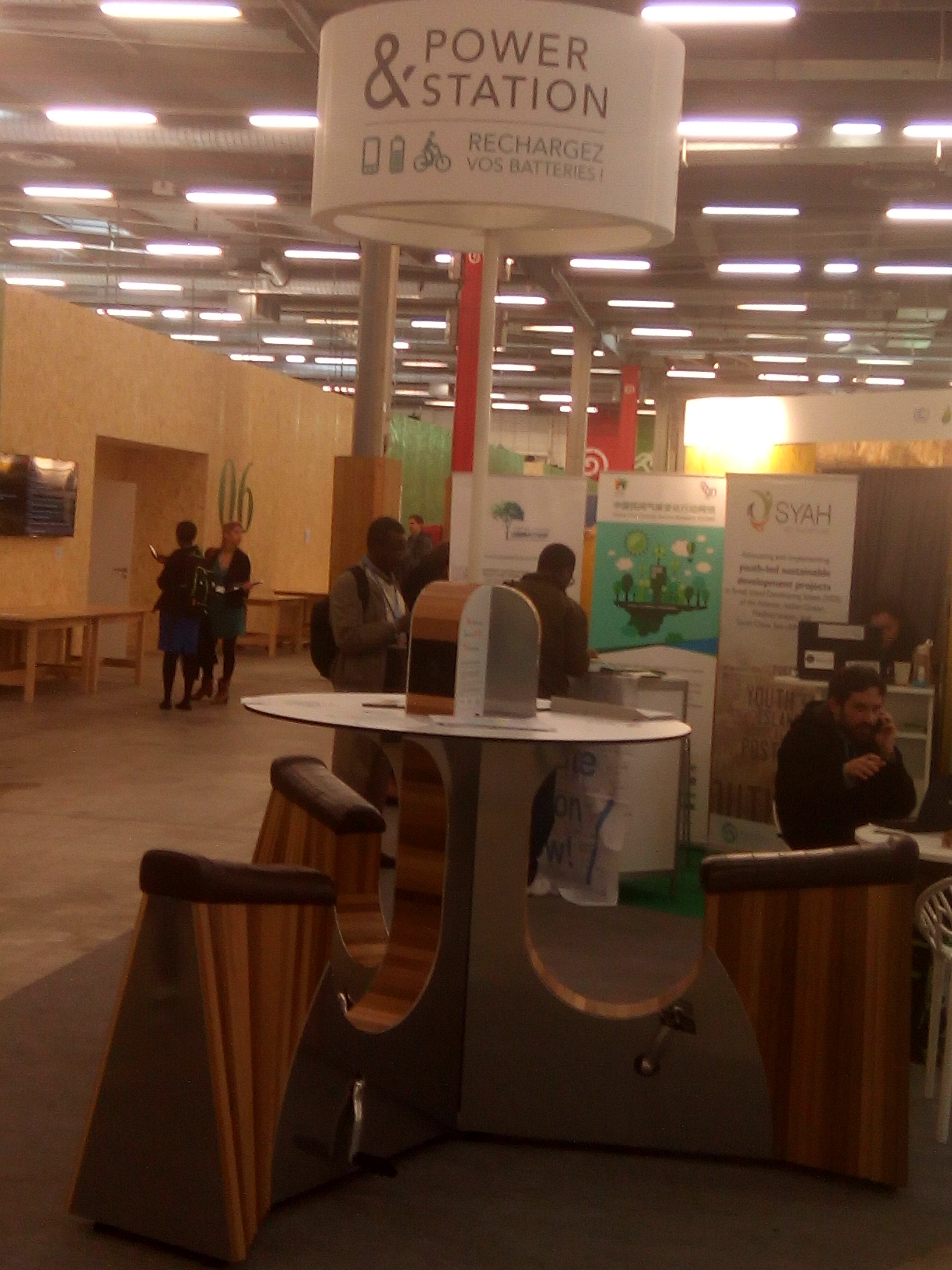Dr Jonathan Chenoweth is attending the United Nations 21st Conference of the Parties (COP21) on behalf of CES. He shares his impressions so far:
Arriving at COP21 this morning I quickly realised the scale of this international conference. Getting off at the train station closest to the conference venue in north Paris, hundreds of others also got off my train and we joined the queue to get on one of the many buses waiting to ferry people to the conference venue. The COP21 venue is huge. It is a former airport which has been taken over by the event and is packed full of meeting rooms, display stands and endless people from all over the world talking about climate change and what we can do about it.
Making such a large event sustainable has clearly been a major aim of the conference organisers. As part of this aim and in order to give this aim credibility, the organisers have sought to achieve ISO20121 accreditation (and this is the first UN climate change conference to attempt certification under this standard). All delegates are given a free public transport pass for Paris for the week, with of course the event organisers putting on the buses to ferry people back and forth from the local railway station. The cafes at the event only serve coffee in reusable cups, with the cups themselves being purchased for a €1. Each time you want a coffee you take your old cup back for washing and they give you a clean one in exchange. Recycling bins are prominently dotted around the venue. Everyone is given a free plastic water bottle upon arrival, with there being water filling points scattered around, so you don’t need to keep buying expensive bottles of water. There are pedal-powered phone charging stations. You plug your phone in to charge and then sit there and cycle away to charge your phone while chatting to fellow delegates on the neighbouring charge points – that is if you are fit enough not to get out of breath before your phone is fully charged.
 The Centre for Environmental Strategy has a stand in the exhibitors’ area of the conference where we can display information about what CES does, its world leading research projects relating to climate change, and our MSc and doctoral programmes. For our stand we were told by the organisers that we should not have piles of leaflets to hand out. Rather, we were told to provide information electronically – give people our website details and get them to check us out digitally. Unfortunately, as we found this morning, many of the other exhibitors have ignored this advice and so visitors to our stand keep wanting to take away our single (laminated) copy of each leaflet we brought. Most, however, are actually happy to go online after we ask them to.
The Centre for Environmental Strategy has a stand in the exhibitors’ area of the conference where we can display information about what CES does, its world leading research projects relating to climate change, and our MSc and doctoral programmes. For our stand we were told by the organisers that we should not have piles of leaflets to hand out. Rather, we were told to provide information electronically – give people our website details and get them to check us out digitally. Unfortunately, as we found this morning, many of the other exhibitors have ignored this advice and so visitors to our stand keep wanting to take away our single (laminated) copy of each leaflet we brought. Most, however, are actually happy to go online after we ask them to.
So, have the organisers of COP21 made the event sustainable? Sustainability is generally talked about in relative terms as people cannot even agree what is absolute sustainability. Compared to so many international conferences, COP21 has clearly made a real effort to be more sustainable than any other such event which I have been to. This is quite an achievement given the size of the event and huge diversity of people present as the organisers needed to meet the needs (and expectations) of high level delegations of ministers as well as humble researchers and environmental campaigners. The organisers have shown what can be done, providing real inspiration for what can be done even better next time.
